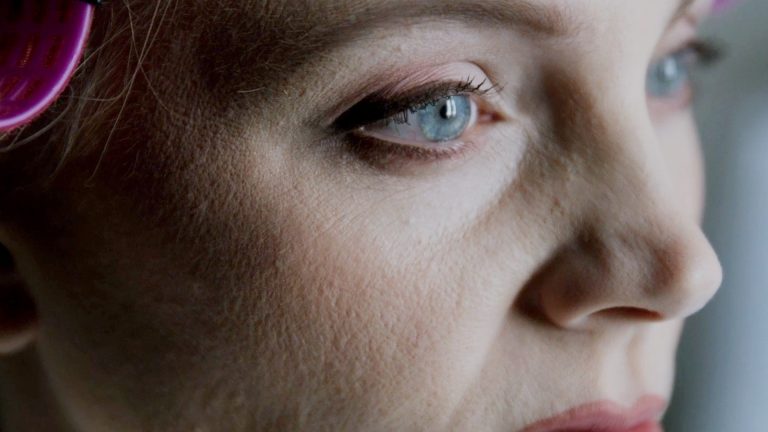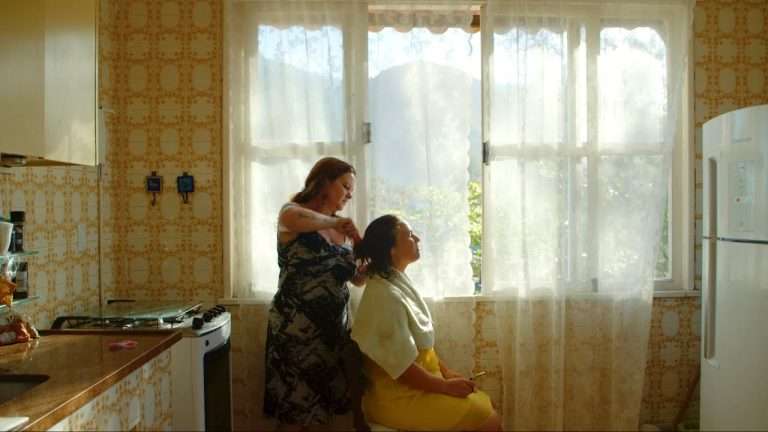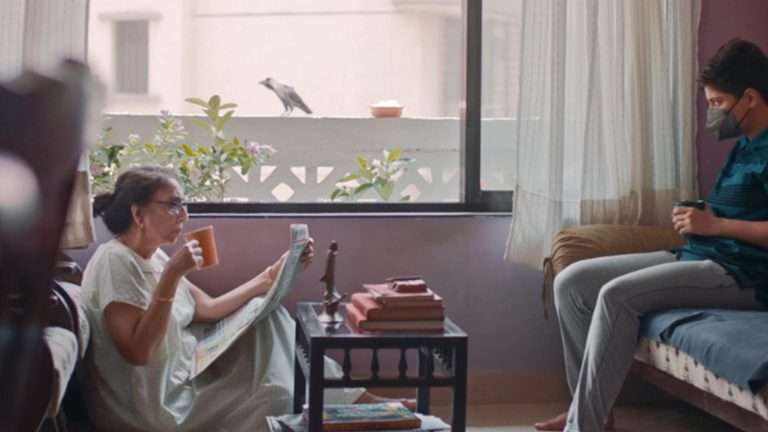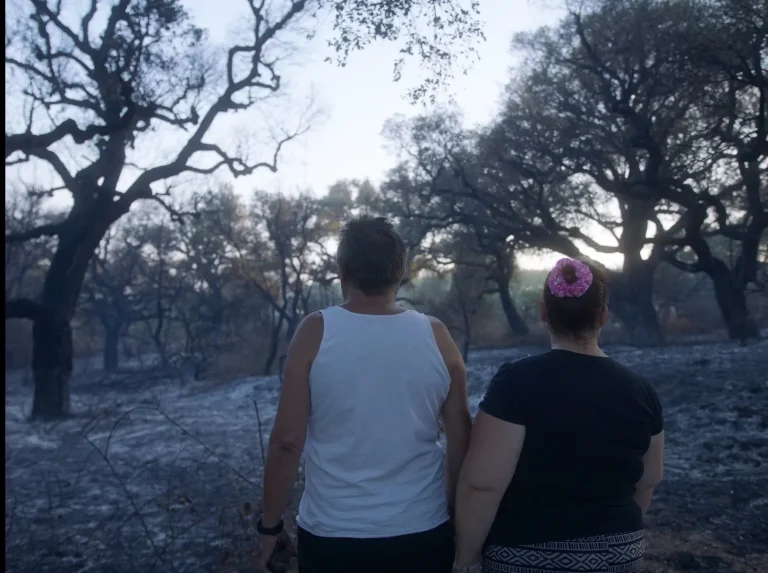Hovhannes Ishkhanyan’s documentary – Beauty And The Lawyer has one of the most unique couples as its subjects. Set in Armenia, we follow the lives of Garik and Hasmik, from their wedding to celebrating their son’s first Christmas. As it transpires, Garik has been a drag artist for a decade, his queer avatar as Carabina a sensation, dabbles in sex work and also puts up autobiographical solo theatre acts that attempt to make sense of the immense queerphobia that is entrenched all around him. While Carabina enjoys popularity, Garik is also subject to intense scrutiny and severe backlash, living in a society that is too keen to wash its hands off and deny the presence of queerness and performing queer bodies.
When we first meet Garik and Hasmik, they are a young couple. While Garik’s parents are comfortable about his identity and preoccupations, he is aware Hasmik’s are quite critical and would rather avoid any association with him. Garik does not spare a beat in loudly suggesting her parents are too complacent and blind in their support for the country’s republican government, which has anti-discrimination policies but is too coy about articulating and legitimizing the space for queers within those. The film makes Garik’s frustration with how queerness is perceived in his country unsparingly clear; on more than a few occasions, Garik passionately declares his absolute refusal to “raise a fag” in Armenia.
His life and work have been brutally ripped to shreds by a deeply intolerant populace, along with the share of attention. The citizens might be amused by his drag performances but expectedly would shrink if the person behind them demanded dignity and recognition as a member of society with equal privileges. Through the theatrical monologues, Carabina expresses the crippling feeling of queer loneliness, rejection, being routinely humiliated, and the constant, unforgiving realization of his existence being better off disowned than given any credence.
But Garik is also someone who doesn’t wallow in misery. He is drawn to reconstructing his life and moving on beyond the disappointment and the hurt. Hasmik, a lawyer staunchly fighting for LGTBQIA rights, has her insecurities, which Garik ribs off but also quietly gives him the strength to weather all the violent, vicious public rhetoric. Ishkhanyan’s account of the couple is more geared toward Garik, and at times, I wished we got a sharper sense of how the two came together and forged this incredibly rock-solid relationship of mutual trust. The missing chinks in this portrait reduce the title’s promise of a two-hander. Hasmik ultimately only registers as a watchful presence; we can gauge some of her stress, but the film does not deepen it into anything solidly palpable.
Instead, we get snapshots of the blatantly skewered attitudes of the government, stemming from the parliamentary proceedings themselves, where trans identity is not deemed worthy of being considered for any respectful debate or plenary. Ishkhanyan pronounces the appearance of a trans woman speaking at the parliament as exceptional. The public outside is agitated at such an opportunity having been accorded, while the authorities inside make impassioned, fuming speeches at the trans woman, blaming her for wasting their time. While these sections give a glimpse of the vitriol against queer rights, they do not enhance our understanding of the characters beyond them as people straining under difficult circumstances.
But the film does get back on track, mostly thanks to the lovely moments Garik has with his parents while building his new house from scratch. He accepts just the help of his parents and no one else. What Ishkhanyan achieves in the film is tapping the energy of the easily lovable Garik. While watching, I couldn’t stop grinning and wondered multiple times if he is perhaps the cutest and sweetest human I’ve seen in a film recently. At one point, Hasmik tells Garik how the doctor, upon observing Garik being utterly hands-on about their son, exclaims if only all men were like him. This is the film’s biggest triumph. It manages to make us pine for more such men like Garik, who can be at perfect ease with both their masculinity and femininity.








